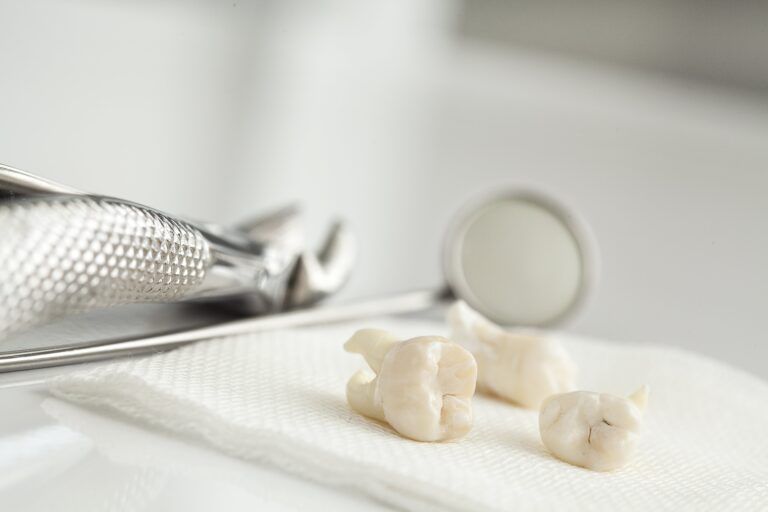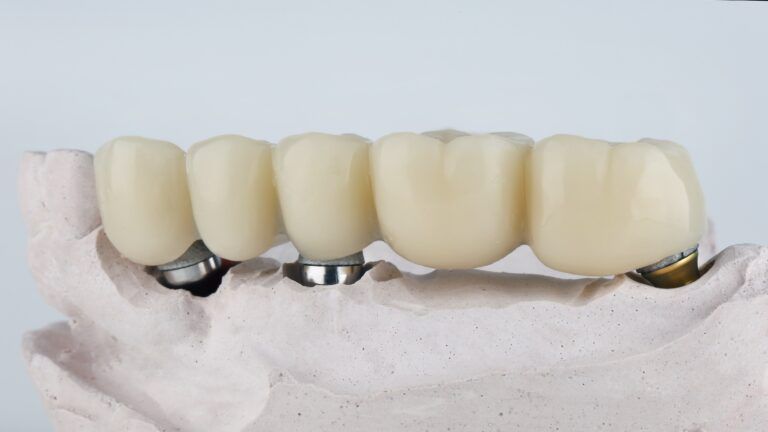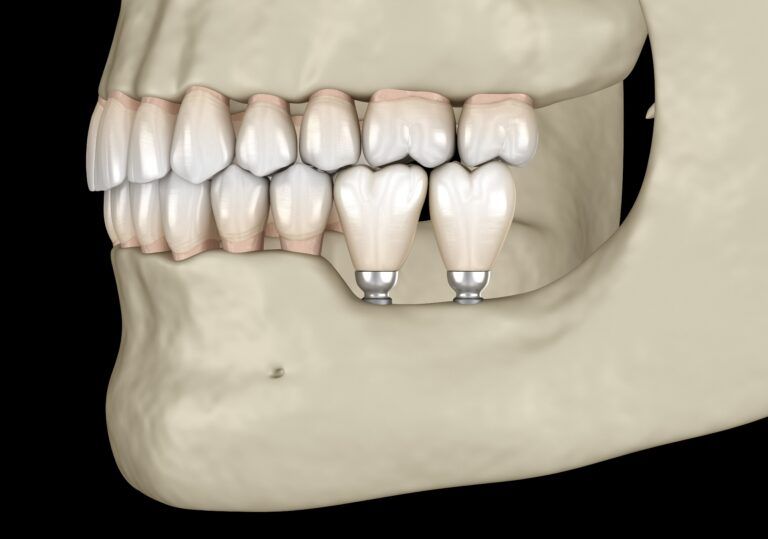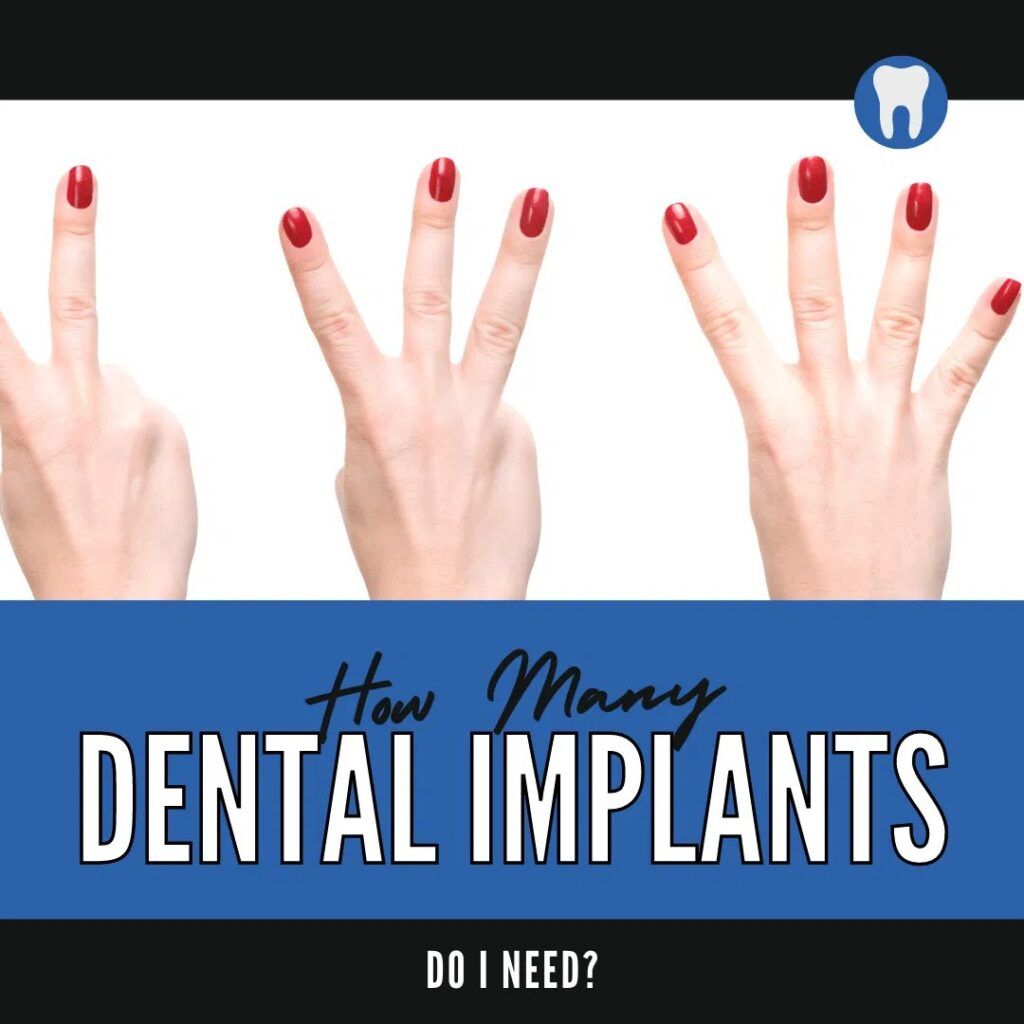Dental implants are artificial tooth roots that are placed in the jawbone to support a restoration such as a crown, bridge, or denture. If you are missing teeth, or have damaged, decayed, or otherwise compromised teeth, dental implants may be the best solution for you. However, if you’re thinking about getting dental implants to replace missing or damaged teeth, you may be wondering how many implants you’ll need. The number of dental implants needed depends on the number of teeth being replaced, the type of restoration being used in coordination with the implants, and the amount of bone mass present. In this blog post, we’ll discuss these factors in depth to determine how many dental implants are generally needed for each type of restoration and when more or less implants may be necessary.
When it comes to having dental implants placed, one common question many people have is how many implants they need. While some cases may have a straightforward answer, more complex cases often don’t have a one-size-fits all answer. This is because they number of dental implants needed depends on different factors such as:
- The number of teeth being replaced: If you’re only missing one tooth, you’ll need one dental implant to support a single crown. If you’re missing multiple teeth, you may need multiple implants to support a bridge or denture.
- The type of restoration being used: The type of restoration being used in coordination with the dental implants will also affect the number of implants needed. For example, if you’re getting a crown supported by an implant, you’ll need one implant for each crown. However, if you’re getting a bridge supported by implants, you may only need two implants for a three-tooth bridge.
- How much bone mass is present: The amount of bone mass present in your jawbone will also affect how many implants you need. If you have less bone mass, you may need more implants to provide adequate support for the restoration.
To effectively answer the question of how many dental implants are needed, let’s take a closer look at these three factors.
The Number of Missing Teeth
The first thing one needs to consider when determining how many dental implants are needed is how many teeth are in need of replacement. Besides teeth that are already missing, severely damaged or decayed teeth that are in need of extraction should also be counted.

If you’re only missing one tooth, you’ll need one dental implant to support a single crown.
If you’re missing multiple teeth, you may need multiple implants to support a bridge or denture. The general rule of thumb is that for every tooth that is being replaced with an implant, one implant is needed. However, in some cases, it may be possible to place fewer implants.
For example, let’s say you’re missing three teeth in a row. To support a dental bridge, your dentist may place two implants (one on each side of the gap) and attach the bridge to those implants. This is because the two implants are able to support the weight of the bridge. However, if your dentist determined that the jawbone wasn’t strong enough to support two implants, he or she may place three implants (one in between the two gap teeth) to support the dental bridge.
The Type of Restoration
The next thing you need to take into account when determining how many implants you’ll need is the type of restoration being used in coordination with the dental implants. The three most common types of dental implant restorations are crowns, bridges, and dentures.
Crowns:
If you’re getting a crown supported by an implant, you’ll need one implant for each tooth. Implant-supported crowns are used to replace a single missing tooth. They can also be used to replace multiple missing teeth that are not located near one another. For example, multiple implant-supported crowns may be used in cases where there is one tooth in the front of the mouth and another in the back of the mouth that needs to be replaced, but the other teeth are healthy. Multiple implant-supported crowns may also be used in cases where the missing teeth are located in different arches, for example one tooth missing from the upper jaw and another missing from the bottom jaw.
Bridges:

Implant-supported bridges are used in cases where there are multiple missing teeth that are adjacent to one another and surrounded by healthy teeth. If you’re getting a bridge, the number of implants needed will depend on the size of the bridge. For example, if you’re missing two teeth in a row and are getting a three-tooth bridge, your dentist may place two implants (one on each side of the gap) to support the weight of the bridge. However, larger bridges may require more implants to ensure maximum support.
Dentures:
Implant-supported dentures are used in cases where all or most of the teeth are missing from a single dental arch. Placing implant-supported dentures on the top and bottom arches thus allows for an entire mouthful of teeth to be restored. Despite the fact that there are an average of 16 teeth per arch, that many implants are not needed to support a denture. Dentures that are being supported by implants usually require four to six implants. In fact, there are special types of implant dentures known as all-on-four implants that only require four strategically placed implants. However, not everyone is an ideal candidate for all-on-four implants and in some cases, more implants may be needed.
The Amount of Bone Mass
Another factor that needs to be considered when determining how many implants are needed is the amount of bone mass. The more bone mass you have, the fewer implants you’ll need. This is because the implants can rely more on the jawbone for support and can be spaced further apart from one another.

If you don’t have enough bone mass, you may still be able to get dental implants, but you may need more of them. This is because the implants will need to be spaced closer together in order to ensure that they have enough support. You may also need to have special types of implants placed, such as mini dental implants (MDIs) or Zygomatic Implants.
In some cases, a bone graft may be needed before dental implants can be placed. A bone graft is a procedure in which artificial or donor bone is placed in the jaw to help build up the bone mass. This is typically done in cases where there is not enough natural bone to support the dental implants.
In Conclusion
In this blog post, we’ve answered the question: how many dental implants do I need? As you can see, the answer to this question is not a simple one. The number of implants needed will depend on a variety of factors, including the number of teeth being replaced, the type of restoration being used, and the amount of bone mass. To help provide insight on how many implants you will need, we evaluated each of these factors in depth. We hope that this blog post has been informative and helpful. If you have any further questions, please don’t hesitate to reach out to our dental implant dentist team.

